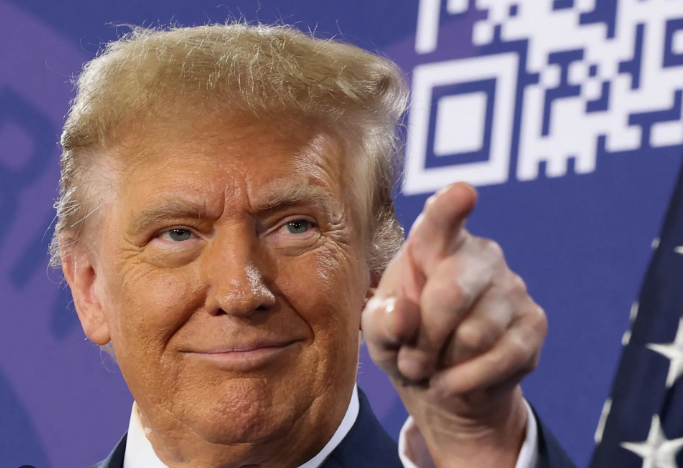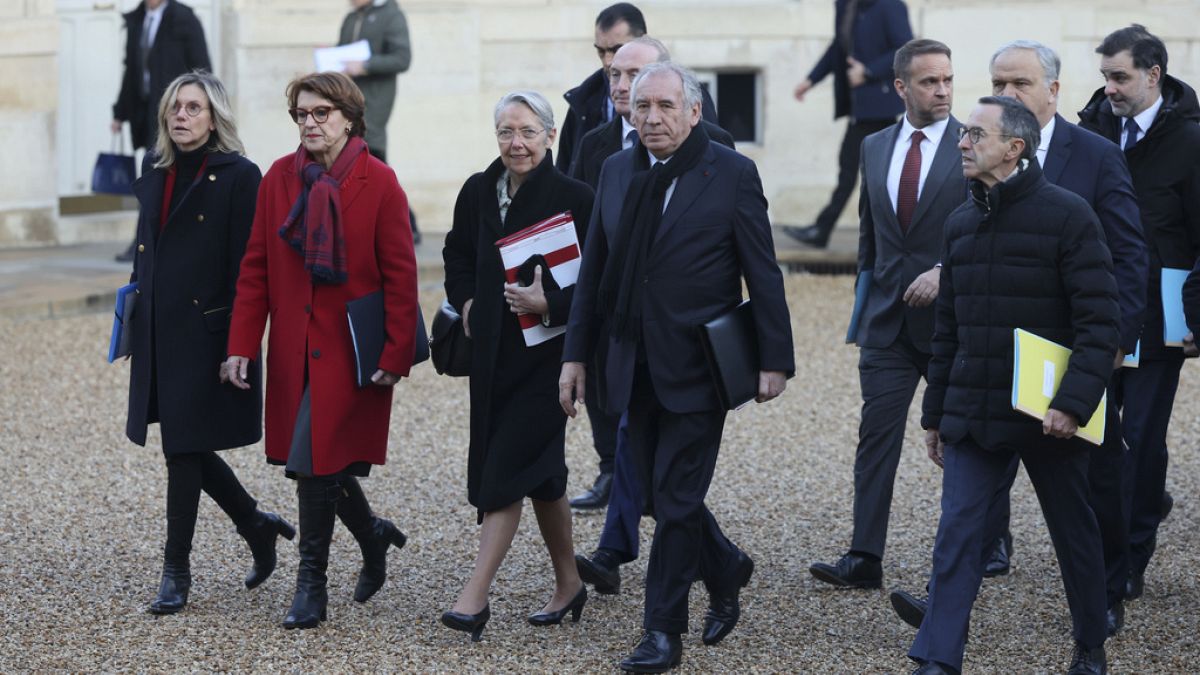Crypto
Cryptocurrency Bans Explained: Which Countries Have Restricted Crypto and Why?

As a digital form of currency that operates independently of any central authority, cryptocurrencies have gained attention in recent years – both from proponents of a new form of monetary system and from governments suspicious of its potential impact.
While some countries have embraced cryptocurrency as a promising financial innovation by introducing comprehensive regulatory frameworks to support development, others have heavily restricted or completely banned its use.
Which Countries Have Banned Cryptocurrencies?
Several countries worldwide have prohibited their citizens from dealing with cryptocurrencies, while others have limited their use in specific ways. Countries such as Argentina, Colombia, Iran, and Taiwan have instituted partial bans, such as allowing individuals to hold or mine digital assets while prohibiting banks from accepting them as payment methods. But there are at least 19 countries where crypto is banned completely.
China is perhaps the most prominent country to have restricted cryptocurrency activity. By the mid-2010s, China had solidified its position as the world’s largest cryptocurrency mining hub, with estimates suggesting that it hosted as much as 75% of the world’s Bitcoin mining capacity in 2018.
However, the Chinese government has a complex relationship with cryptocurrencies, imposing a blanket ban on initial coin offerings (ICOs) in September 2017 and subsequently banning cryptocurrency trading platforms in 2019. Individuals continued to trade, however, and as China has been a major crypto market, these bans had a notable impact on the price of Bitcoin and other popular coins and tokens.
The most significant change came in 2021, when the Chinese government intensified its crackdown on cryptocurrency activities, including mining. This led to the closure of many mining operations and a shift in the global cryptocurrency mining landscape. China’s share of the mining market had dropped to around 21% by the end of 2021.
The Chinese government cited concerns about financial stability and money laundering as reasons for the ban. It has also been encouraging the adoption of its CBDC, the e-yuan, offering the benefits of a digital asset while maintaining its control over the money supply.
Nepal has banned cryptocurrency transactions since 2017 when the country’s central bank issued a directive stating that any transactions involving cryptocurrency would be considered illegal. Bangladesh also issued a ban in 2017 warning against the use of Bitcoin and other cryptocurrencies as an offense that can result in imprisonment.
Several African nations have imposed outright bans on cryptocurrencies. The government of Algeria, in North Africa, issued a law in 2018 that criminalizes the use, purchase, sale, and holding of cryptocurrencies, citing concerns about their potential use in illegal activities. In Morocco, the Foreign Exchange Office and central bank issued a joint warning in 2017, emphasizing that transactions involving cryptocurrencies would be subject to penalties. Ghana, Lesotho, and Sierra Leone has bans, as do Egypt, Libya, and Morocco.
In Latin America, Bolivia’s Financial System Supervision Authority issued a resolution in 2014 prohibiting the use of Bitcoin and other digital currencies, citing a lack of consumer protection and the potential for money laundering. In 2022, the Bolivian central bank prohibited the banking sector from using, marketing, or transacting cryptocurrency assets to protect the public from “risks, frauds and swindles” and “the risk of creating economic losses”. Meanwhile, in 2014, Ecuador became one of the first countries to introduce its own CBDC, the “Sistema de Dinero Electrónico” (Electronic Money System), and banned the use of decentralized cryptocurrencies as legal tender.
| Country | Ban introduced |
| Afghanistan | The Taliban prohibited crypto trading in August 2022. |
| Algeria | In 2018 Algerian parliament passed the Financial Law, which prohibits the purchase, sale, use, and possession of crypto. |
| Bangladesh | In 2017, Bangladesh Bank stated that crypto assets are considered illegal and issued a notice in 2022 that it does not recognize virtual currencies. |
| Bolivia | The Central Bank of Bolivia has banned crypto use since 2014 and reiterated its position in 2022, barring the banking sector from any crypto-related transactions. |
| China | In 2021, the government extended previous restrictions to ban mining, outlaw crypto transactions, and block foreign exchanges from offering services to Chinese citizens. |
| Egypt | In 2022, the central bank renewed its warning against crypto because of its high risks, fluctuating value, and use in financial crimes. |
| Ghana | In 2022, the government reiterated its 2018 ban on the use of crypto in all financial transactions while it assesses how blockchain technology fits into the payments system. |
| Iraq | The Iraqi Central Bank prohibited crypto in 2017, and in 2018, the Kurdistan Regional Government’s Supreme Fatwa Board ruled against the use of the OneCoin cryptocurrency. |
| Kuwait | In July 2023, Kuwait’s Capital Markets Authority banned virtual asset transactions, including crypto, as part of anti-money laundering efforts. |
| Lesotho | The central bank has stated since 2018 that crypto is unregulated and unlicensed, so promoting crypto investments is forbidden. |
| Libya | In 2018, the Central Bank of Libya stated that virtual currencies are illegal, pending regulation, as they may be used to carry out criminal activities. In June 2023, 50 Chinese nationals were arrested in a crackdown on illegal mining. |
| Morocco | The Ministry of Economy and Finance banned all crypto transactions in 2017 as violations of exchange regulations. But in January 2023, the central bank announced a draft crypto regulation bill. |
| Myanmar | In 2020, the Central Bank of Myanmar declared a ban, stating that anyone caught trading crypto could be imprisoned or fined. In July 2023, the shadow government set up a crypto bank to disrupt the foreign currency flows to the ruling military junta. |
| Nepal | The central bank, Nepal Rastra Bank, banned crypto use, exchange, and mining in 2017, and in 2021, it stated that crypto trading and encouraging others to use crypto are illegal. In January 2023, Nepal’s Telecommunications Authority instructed all Internet service providers to block all crypto-related websites, apps, or online networks. |
| North Macedonia | The government has completely banned crypto use since 2016. |
| Republic of Congo | According to the International Monetary Fund (IMF), the government has banned crypto outright outright. |
| Saudi Arabia | In 2017, the Saudi Arabian Monetary Agency (SAMA) stated that financial institutions are banned from crypto transactions, and the government issued a warning in 2019 about transacting in crypto assets unsanctioned by the state. In 2022, SAMA hired a virtual assets lead to develop regulations. |
| Sierra Leone | The Bank of Sierra Leone banned two crypto companies in 2019 and announced that it has not licensed or permitted any businesses or financial institutions to take deposits for crypto investing or trading. |
| Tunisia | Tunisia has strictly banned the use of crypto. There have been calls to decriminalize it since a teenager was arrested in 2021 for using crypto in an online transaction. |
Like China, several countries have taken evolving positions on the legality of cryptocurrencies within their borders. For instance, Bangladesh’s central bank announced in 2017 that cryptocurrency transactions are illegal under money laundering and terrorist financing regulations. However, the government published its National Blockchain Strategy in 2020, recognizing “the need to explore blockchain technology in order to advance its technical capacity, increase efficiency in e-Governances, and foster innovations… to guide Bangladesh into a blockchain-enabled nation.” But in 2022, Bangladesh Bank issued a notice stating that transactions involving virtual assets, including virtual currencies, are not permitted.
Egyptian authorities have long been critical of digital currencies. In 2018, religious leaders issued a statement that virtual currencies are forbidden under Islamic law. In 2020, the Central Bank of Egypt published licensing rules for issuing, dealing, or promoting cryptocurrencies, indicating that it was potentially on the path to regulating their lawful use. However, in 2023, the central bank reiterated its “previous warnings against dealing with all types of cryptocurrencies, whether through individuals, companies, applications, or digital platforms. Thereby, the Central Bank of Egypt emphasizes that no license has ever been issued or granted to engage in such trading activities in the Egyptian market due to the high risks they comprise, including but not limited to fluctuations and significant price volatility, as well as their use in financial crimes, and electronic piracy.”
In several countries where digital assets are officially banned, individuals continue to actively trade or hold them as a store of value or a way to generate income. And the decentralized nature of cryptocurrencies can make it difficult to enforce restrictions. In Ethiopia, the central bank stated in June 2022, reiterating that cryptocurrency business was illegal. But less than three months later, in August, it appeared to have reversed its decision, stating that cryptocurrency operators were required to register with the Information Network Security Administration (INSA), the government’s cybersecurity agency, within 10 days. The INSA acknowledged that “there is interest among individuals and entities in providing crypto services including mining and transfer. To properly regulate this field, INSA has begun to register individuals and entities that are involved in crypto operations (services).”
Why Some Countries Ban Cryptocurrency
The decision by several governments to prohibit the trading or use of cryptocurrency in their countries is rooted in a combination of economic, regulatory, and security concerns. Here are some key reasons why certain nations have chosen to take a cautious approach or an outright ban:
- Financial stability: One of the primary concerns for governments is the potential impact of cryptocurrencies on their domestic financial systems. Their decentralized and often volatile nature can pose risks to financial stability, as sudden surges or crashes in crypto prices can have a severe impact on investors and financial institutions.
- Consumer protection: The lack of investor protection mechanisms in crypto markets can leave consumers vulnerable to fraud, scams, and market manipulation. Inexperienced investors may fall victim to Ponzi schemes or lose their savings owing to the speculative nature of cryptocurrency markets.
- Money laundering and illicit activities: Cryptocurrencies offer a degree of anonymity, making them attractive to criminals for money laundering, tax evasion, and illegal transactions. Governments are concerned that cryptocurrencies are used to finance terrorism, drug trafficking, and other illicit activities.
- Tax evasion: Cryptocurrency transactions can be difficult to trace, raising concerns about tax evasion. Some governments are concerned that an increase in individuals or businesses using cryptocurrencies to avoid paying taxes could reduce their revenues.
- Lack of control: Cryptocurrencies operate outside the control of central banks and governments. Some governments view this as a challenge to their sovereignty, reducing control over the money supply and monetary policy.
- Financial fraud: Cryptocurrency markets are rife with scams, fraudulent initial coin offerings (ICOs), and Ponzi schemes. Governments often ban cryptocurrencies to protect their citizens from falling victim and losing their money.
- Some countries are developing their own central bank digital currencies (CBDCs) and see private cryptocurrencies as a potential threat to their adoption. They may choose to ban or heavily regulate private cryptocurrencies to promote the use of their own digital currencies.
The Bottom Line
While cryptocurrency has gained widespread popularity as a decentralized and borderless form of digital currency, not all countries have embraced it with open arms. Regulatory positions are frequently changing, with some governments banning cryptocurrency outright while attempting to assess the implications of blockchain technology and digital assets on their financial systems. These restrictions often arise from concerns about financial stability, consumer protection, and the potential for illegal activities such as money laundering.
The rapidly developing nature of the cryptocurrency industry means that regulatory approaches may continue to evolve in the future as governments grapple with finding the right balance between embracing innovation and mitigating potential risks.

Crypto
Experts celebrate promising new breed of cryptocurrency: 'Not only promises efficiency …'

An up-and-coming player in the world of cryptocurrency is looking to revolutionize the industry through its unique processes that highlight sustainability.
According to Be3, cryptocurrency XRP, developed by Ripple Labs, could have a “transformative impact on both finance and environmental sustainability” thanks to its unique consensus mechanism that does not require mining and uses a negligible amount of energy even as it scales.
It generates a minuscule amount of pollutants per transaction while producing 1,110 pounds of electronic waste and impacting just over 8 cubic miles of natural resources.
This approach separates XRP from its contemporaries, which often rely on the notoriously power-hungry proof-of-work systems and hulking mining centers that can destabilize the grid.
Statistics provided by TRG Datacenters show that XRP is the second-most eco-friendly cryptocurrency behind IOTA, consuming just 0.0079 kilowatt-hours per transaction. Comparatively, bitcoin ranks last at a staggering 707 KWh per transaction.
Furthermore, the cryptocurrency became the first major global blockchain to achieve carbon net zero by purchasing enough renewable energy to offset its minimal energy requirements, per the XRP Ledger.
Be3 also noted other features that make XRP an attractive option for institutions focused on environmental responsibility, as it takes just three to five seconds to settle at fractions of a cent per transaction.
It’s a welcome addition to a sector that desperately needs more sustainable options. A study by the International Monetary Fund found that crypto mines, in conjunction with artificial intelligence data centers, accounted for 2% of global electricity demand and 1% of carbon dioxide pollution in 2022.
The United Nations found that the bitcoin mining network used 173.42 terawatt-hours of electricity between 2020 and 2021, resulting in a carbon footprint equivalent to burning 84 billion pounds of coal.
Coal and natural gas also supplied 66% of the energy for mining operations during this period, polluting the planet with planet-warming gases.
Luckily, the sector has made significant strides in recent times in an effort to become more eco-friendly.
Alephium, which utilizes a proof-of-work blockchain, has partnered with Gigatons to implement a proof-of-less-work consensus that is significantly more energy efficient.
Meanwhile, Ethereum has transitioned to a proof-of-stake system that has cut its energy consumption by nearly 100%.
“In a world increasingly attentive to environmental impact, XRP’s innovative technology not only promises efficiency but also a greener future,” Be3 wrote.
Join our free newsletter for good news and useful tips, and don’t miss this cool list of easy ways to help yourself while helping the planet.
Crypto
ZIUM Launches to Revolutionize Instagram and Cryptocurrency Solutions

Zagreb, Croatia–(Newsfile Corp. – January 12, 2025) – ZIUM, a cutting-edge agency founded to tackle some of the most pressing challenges in social media and digital marketing, is now officially open for business. Specializing in Instagram username claims, account unbans, and cryptocurrency marketing, ZIUM has positioned itself as a trusted partner for individuals and businesses seeking innovative solutions in the digital age.
The agency operates at the intersection of technology, social media, and blockchain marketing, empowering clients to unlock their full potential online. With a dedicated team of experts and a results-driven approach, ZIUM is redefining the way people navigate the ever-changing online landscape.
ZIUM
To view an enhanced version of this graphic, please visit:
https://images.newsfilecorp.com/files/9586/236268_f6b779d0b42269a0_001full.jpg
A New Era of Digital Problem Solving
ZIUM’s services address real-world challenges in today’s digital ecosystem. Instagram, one of the largest and most influential social platforms, has become a critical tool for personal branding, business promotion, and community engagement. However, issues such as unavailable usernames or unfair account suspensions can hinder growth and cause frustration. ZIUM steps in to provide solutions that are fast, efficient, and tailored to each client’s needs.
Additionally, ZIUM excels in cryptocurrency marketing, offering projects and startups a strategic edge in the fast-paced blockchain industry. By combining deep knowledge of crypto trends with cutting-edge marketing strategies, the agency helps blockchain projects stand out in an increasingly crowded market.
Core Services Offered by ZIUM
-
Instagram Username Claims
In the crowded social media space, having the perfect Instagram username can make all the difference. Whether it’s for a brand, influencer, or business, ZIUM specializes in acquiring sought-after usernames to align with clients’ goals and identities. The agency handles the process from start to finish, ensuring a smooth and hassle-free experience. -
Instagram Account Unbans
Account suspensions on Instagram can be devastating, especially for businesses and influencers relying on the platform for engagement and revenue. ZIUM offers expert account recovery services, helping clients navigate Instagram’s policies to regain access to their accounts quickly and effectively. -
Cryptocurrency Marketing
The cryptocurrency space is highly competitive, and visibility is key. ZIUM provides end-to-end marketing strategies tailored to blockchain projects, ensuring they reach the right audience. From brand development to targeted campaigns, ZIUM helps crypto ventures grow and thrive in an ever-evolving market.
Crypto
Donald Trump Embraces Meme Coins—A Presidential First

Donald Trump is making news once more, but this time it’s not for political reasons; it’s about cryptocurrency. As he prepares to return as the 47th President of the United States, Trump will become the first sitting president to own meme currencies, a decision that has stirred both enthusiasm and skepticism in the crypto community.
Trump: A Significant Crypto Portfolio
Recent sources claim that Trump’s crypto wallet consists largely of meme coins and is valued roughly $8 million. Among the assets are $1.5 million in a meme currency with Trump-themed design and $5.5 million in TROG tokens.
In addition, he has about 1.3 billion GUA coins, which amounts to nearly $400,000, and $167,000 in TRUMPIUS tokens. This is a first of its kind, where Trump becomes an oddity in the world of politics and cryptocurrency, considering his earlier reluctance towards digital assets.
DONALD J. TRUMP WILL BE THE FIRST SITTING US PRESIDENT TO HOLD MEMECOINS pic.twitter.com/ODlNXDaKIT
— Arkham (@arkham) January 10, 2025
From Skepticism To Support
Trump’s journey into the crypto world is notable. He had been a strong critic of Bitcoin and other cryptocurrencies, calling them scams. But that all changed in 2024 when he started publicly endorsing Bitcoin and speaking out for the right to own it. That’s a broader trend among politicians, who are increasingly recognizing the potential of cryptocurrencies and their growing popularity among voters.
Trump’s financial success in the digital sphere was also aided by his venture into non-fungible tokens (NFTs) on Ethereum. Trump reportedly made a good living from these endeavors, and he currently owns roughly 496.77 ETH, which is worth about $1.6 million.
Implications For Regulation
Many people are eager to see how Trump’s administration will regulate cryptocurrencies now that he is back in office. A possible change toward a more advantageous regulatory climate for digital assets is hinted at by the nomination of important individuals like David Sacks as “Crypto Czar” and Paul Atkins as SEC chair. This could result in more precise rules for investors and businesses involved in the cryptocurrency industry.

Donald Trump. Image: Ronda Churchill/Reuters
The policies by Trump are already changing market dynamics as everybody is anxiously awaiting them. During this time when Bitcoin hit a record high of $108k, while meme coins surged, analysts still feel that Trump could make the year 2025 a major turning point in cryptocurrencies.
Meme Coin Boom
The rise of Trump-owned meme coins is indicative of a broader cultural shift among younger investors who are fed up with established financial institutions. This combination of the political influence of Trump and the speculative nature of meme coins puts a scenario under which political events could significantly affect cryptocurrency markets. Thus, while the investors go about this, they are not ignorant of the volatility that is usually associated with meme coins.
Featured image from Fortanix, chart from TradingView
-

 Politics1 week ago
Politics1 week agoWho Are the Recipients of the Presidential Medal of Freedom?
-

 Health1 week ago
Health1 week agoOzempic ‘microdosing’ is the new weight-loss trend: Should you try it?
-
/cdn.vox-cdn.com/uploads/chorus_asset/file/25822586/STK169_ZUCKERBERG_MAGA_STKS491_CVIRGINIA_A.jpg)
/cdn.vox-cdn.com/uploads/chorus_asset/file/25822586/STK169_ZUCKERBERG_MAGA_STKS491_CVIRGINIA_A.jpg) Technology4 days ago
Technology4 days agoMeta is highlighting a splintering global approach to online speech
-

 News1 week ago
News1 week agoSeeking to heal the country, Jimmy Carter pardoned men who evaded the Vietnam War draft
-

 Science2 days ago
Science2 days agoMetro will offer free rides in L.A. through Sunday due to fires
-

 News1 week ago
News1 week agoTrump Has Reeled in More Than $200 Million Since Election Day
-

 News1 week ago
News1 week agoThe U.S. Surgeon General wants cancer warnings on alcohol. Here's why
-

 World1 week ago
World1 week agoCalls for boldness and stability at Bayrou's first ministers' meeting













